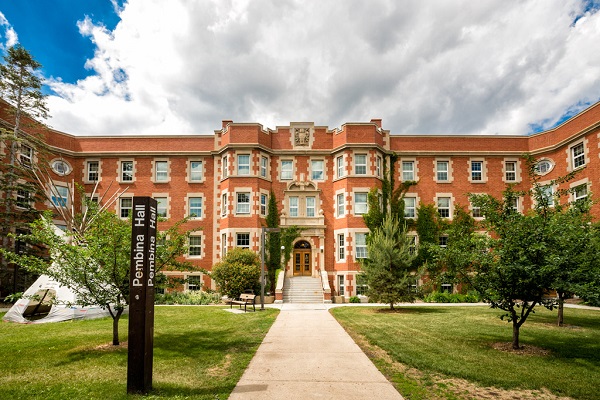University of Alberta: Internship program that supports Black students in STEM expands to Ottawa
It takes more than technical knowledge to succeed in a career in science, technology, engineering or math. It takes a network of support and skills beyond the strictly academic, said engineering professor André McDonald.
Black students face particular challenges, which is why McDonald founded a program at the University of Alberta in 2021 to support and encourage their success.
Now the program is expanding nationally through a partnership with Carleton University, which will offer it to university students this summer.
Over the 8- to 16-week paid internships with the Experiential Learning in Innovation, Technology, and Entrepreneurship Program for Black Youth, known as ELITE, high school and university students aged 15 to 22 are placed with employers or university research professors to gain hands-on learning and work-integrated experience. They receive leadership and entrepreneurship training, as well as group coaching and wellness sessions that provide a more holistic approach to an internship program. The first U of A cohort of 38 interns started last summer.
Students in the program quickly learn they’re not in it alone. They can share experiences with other interns within their cohort. They have access to a leadership team that cheers them on and provides an example of what success can look like. And they develop a professional network through the internship hosts who partner with the program.
“It allows us to provide Black youth with additional tools that can support their upward mobility and give them an opportunity to break down barriers or circumvent them in meaningful and productive ways,” said McDonald, who is also the director of the program and professor in the University of Alberta’s Faculty of Engineering.
The expansion itself shows just how valuable a network can be. The partnership with Carleton came about when McDonald was talking to his former engineering colleague Larry Kostiuk about what he had in the works. Kostiuk, now dean of the Faculty of Engineering and Design at Carleton, agreed to help launch a cohort at Carleton this summer.
“You’re around this cohort who understands you and, by having that network, the conversations go much deeper, much faster, and the connections are lifelong, and they’re so self-stabilizing,” said Kostiuk.
A network can be invaluable during stressful situations or when you’re struggling, he added. “What you need is someone to say, ‘I get you. Push through. We’ll do this together.’ That’s why it needed to be a community-based network.”
The coaching and wellness aspect of the internship is an unusual and special part of the program, said Sophie Yohani, a registered psychologist and professor in the Faculty of Education who created the wellness component. “There weren’t any models of similar programs to follow.”
Students are divided into cohorts of about 10 to learn about topics such as managing stress, building healthy relationships and addressing racial microaggressions — indirect or subtle discrimination against members of a marginalized group. The group dynamic was particularly helpful for students, explained Yohani.
“They would learn what those experiences are like for other interns. They would learn strategies for coping from each other. So there was that built-in peer support.”
The program is bringing the same holistic approach to Carleton, integrating entrepreneurship and wellness in addition to work experience, and drawing on partnerships with businesses and resources in Ottawa.
They would learn what those experiences are like for other interns. They would learn strategies for coping from each other. So there was that built-in peer support.
Sophie Yohani, registered psychologist and education professor, on the ELITE program’s group-based coaching and wellness component
“We’ve been able to really tap into established infrastructure and create a local version of the ELITE program elsewhere,” said McDonald.
The plan is to have about 54 interns in Edmonton this year as well as seven to 10 in Ottawa. The inaugural cohort of U of A interns in 2021 was selected from more than 100 applicants. McDonald said he wouldn’t be surprised if that applicant pool doubles this year.
With Carleton serving as a pilot, McDonald’s dream is to expand the program even further to post-secondary institutions across Canada, particularly in cities with a high population of Black youth who could benefit from the program.
“The community has rallied behind us — the Black community, the industry community, the government community, the U of A community,” he said.
“People see the value and appreciate what we’re doing and want to support us without us even asking. It’s really brilliant and I’ve never experienced anything like that in my life.”

